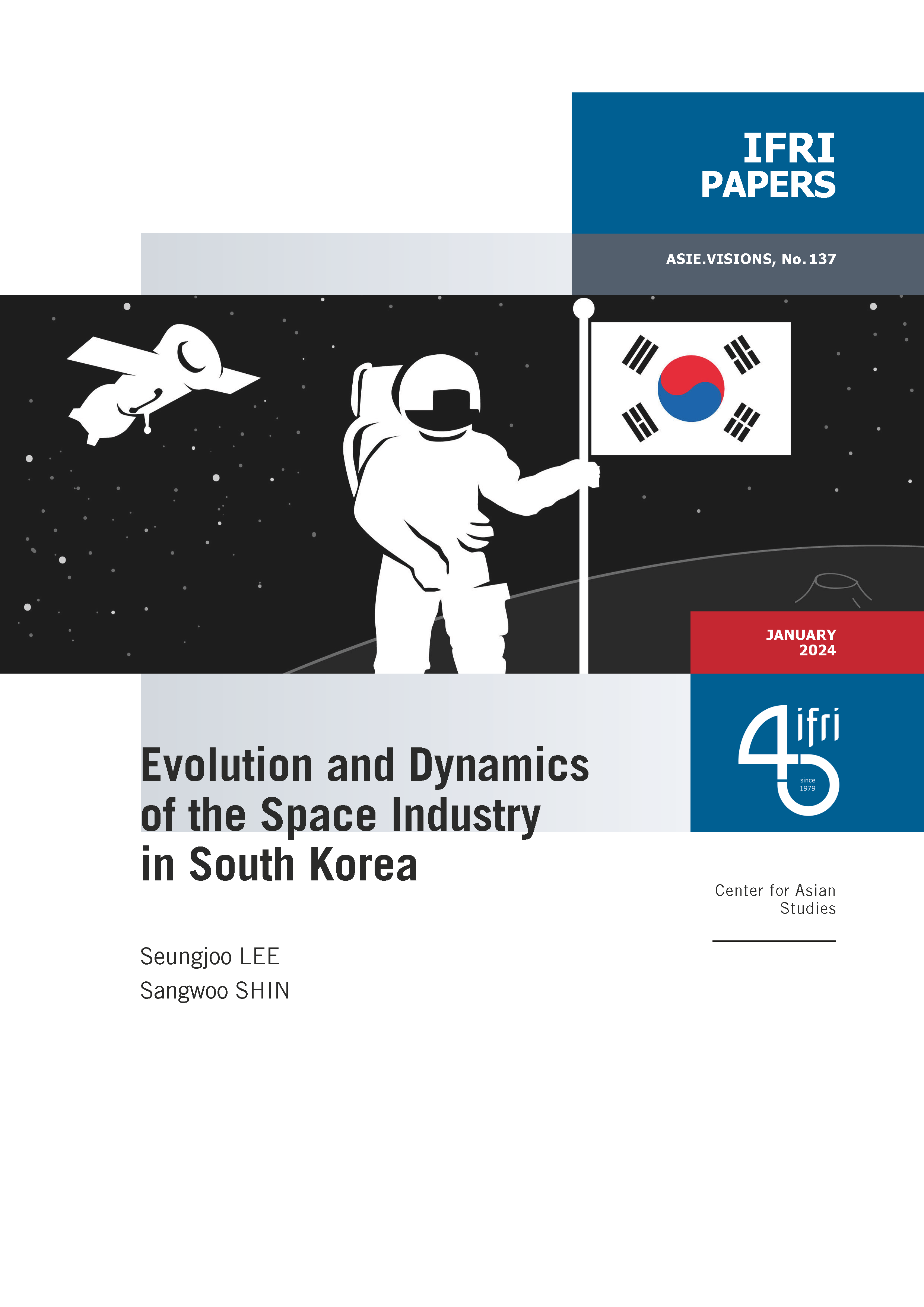Evolution and Dynamics of the Space Industry in South Korea

The advent of the 21st century has witnessed the rise of the space industry as a pivotal arena of technological innovation, economic opportunity, and geopolitical significance. Amidst this global landscape, South Korea has emerged as an increasingly influential player in space exploration and technology.

This paper comprehensively examines South Korea’s strategic approach to its space industry, covering growth patterns, governmental policies, and international positioning.
First, while discussing recent legislative changes and the Korean Aerospace Agency (KASA) establishment, we focus on the space industry ecosystem to highlight a shift to a market-oriented model for sustained growth. The shift in the space industry in South Korea hinges upon various factors, such as well-established governance, the private sector’s capital investment, and legal reforms.
Second, South Korea’s evolving space strategy, spanning three phases and aiming for global space economic power by 2045, is incorporated in the “Space Development 2.0” initiative that outlines goals to integrate space exploration with economic infrastructure. Also, South Korea’s military space strategy, outlining a three-stage plan for enhanced capabilities and institutional restructuring, has emerged as a new component of South Korea’s space strategy. The international cooperation strategy, including a strengthening space alliance with the U.S. and collaborations with emerging space nations, underscores South Korea’s commitment to a global and collaborative approach.
In conclusion, the paper provides a multifaceted analysis, offering insights into South Korea’s trajectory as a critical player in the evolving space landscape, covering legislative, economic, technological, and international dimensions.
Download the full analysis
This page contains only a summary of our work. If you would like to have access to all the information from our research on the subject, you can download the full version in PDF format.
Evolution and Dynamics of the Space Industry in South Korea
Related centers and programs
Discover our other research centers and programsFind out more
Discover all our analyses
Opening up the G7 to South Korea to Address Contemporary Global Challenges
The G7’s global influence has diminished as powers like China reshape international governance through initiatives such as BRICS and the Shanghai Cooperation Organisation (SCO). With the G7 now representing just 10 per cent of the world’s population and 28 per cent of global GDP, its relevance is increasingly questioned.
Expanding SPDMM as a pivotal institution in the Pacific – A French perspective
The South Pacific Defence Ministers’ Meeting (SPDMM) is the only forum that brings together defense ministers from the wider South Pacific — including Chile, which is hosting it for the first time. This heterogeneous group of countries with varying resources, capacities, and interests — Australia, Chile, Fiji, France, New Zealand, Papua New Guinea (PNG), and Tonga — are united by their shared determination to strengthen cooperation on maritime security and humanitarian assistance and disaster relief (HADR) activities.
EU’s Derisking From China: A Daunting Task
With economic security as a major concern, the EU has recently turned to “derisking” from China. The EU strategy entails reducing critical dependencies and vulnerabilities, including in EU supply chains, and diversifying where necessary, while recognizing the importance and need to maintain open channels of communication.
Sri Lanka’s NPP Government. From System Change to Structural Compliance
In September 2024, a relative outsider to Sri Lanka’s two-party-dominated political system, Anura Kumara Dissanayake, won the presidential elections. The anti-establishment, populist movement he represented, the National People’s Power (NPP), went on to receive an overwhelming mandate in the November 2024 general elections, winning 159 seats in a 225-member parliament.










